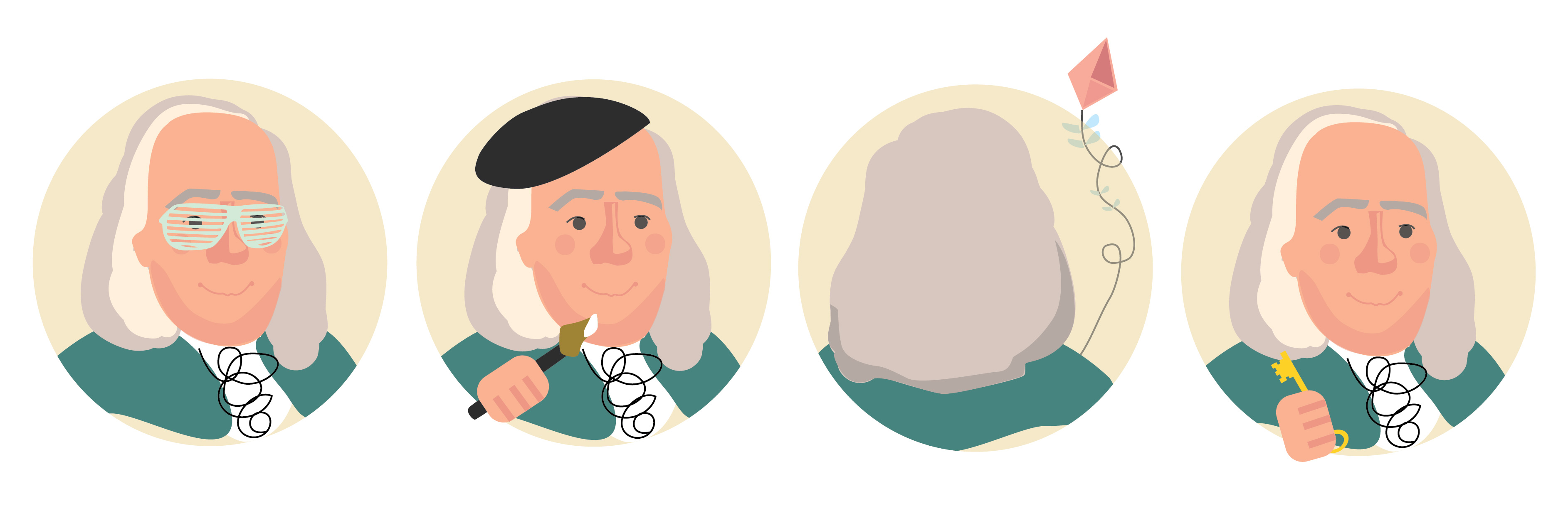“Marriage is the most natural state of man, and . . . the state in which you will find solid happiness.”
– Benjamin Franklin
Benjamin Franklin was the George Clooney of his day. One might not look at Benjamin Franklin and think sex icon, but standards for popular fan craze in Ben’s day were not centered on physical qualities, but rather social status and intellectual prowess. As a self-made man and political figurehead, the ladies could not get enough of Benjamin Franklin. Ben’s response: cordial flirtation. Before his marriage to Deborah Reed, Benjamin Franklin engaged in numerous romantic relationships, simply enjoying the company of intelligent, beautiful woman. One of his pre-marriage flings resulted in the birth of his prominent, bastard son William.
Ben’s pledge of fidelity to Deborah in marriage seems aside from the natural state of this amorous man. Burying uncontrollable sexual desire out of loyalty to the sanctity of marriage appears to bridle Benjamin’s raw “natural” emotion. One might then wonder how Franklin could declare marriage as natural.
Perhaps natural stems beyond an uncontrollable emotion and roots itself in an intended state. Humans are creatures of companionship. Whether looking at Homo sapiens from a reproductive or simply from a psychological standpoint, humanity was never meant to be alone. Without the presence of another human being, we are prone to lose ourselves to our own thoughts. Solitude, while essential for more introverted individuals, in large doses produces serious ramifications. Take Chuck Nolan (Tom Hanks) from the film “Cast Away” (2000). Indefinitely stranded on an isolated island, Chuck experienced cycles of loneliness, helplessness, and depression. Chuck’s coping mechanism: befriending a Wilson volleyball marred with his own bloody handprint. Just as Chuck could rely up Wilson’s presence, a husband can rely upon his wife’s companionship as promised in the marriage vow “till death do us part”. Marriage promises lifetime friendship and provides the security humans inherently desire.
Beyond natural, Benjamin Franklin makes a bold claim linking marriage to solid happiness. Tell that to the millions of divorced families in America and see how they might respond. Ben surely means not to link an ultimatum to marriage saying if you are married, you are happy. Instead, he links the fruits of a healthy, pure marriage (i.e. lifetime friendship and security) with happiness. Strong friendship created by a successful marriage breeds unconditional love. Friendship within a married couple centers on long-term commitment. One often links the words “no matter what” to a married relationship. This committed love not based off actions or circumstances is, by definition, agape, or unconditional love. This type of liberating love satisfies the human desire for affection and produces joy and happiness. Due to its seemingly immovable nature, agape is a reliable source of satisfaction, therefore qualifying marriage as a potential source of solid happiness. No married couple practices unconditional love perfectly, but Ben only argues that marriage establishes an excellent space for this type of satisfying love.




Leave a Reply